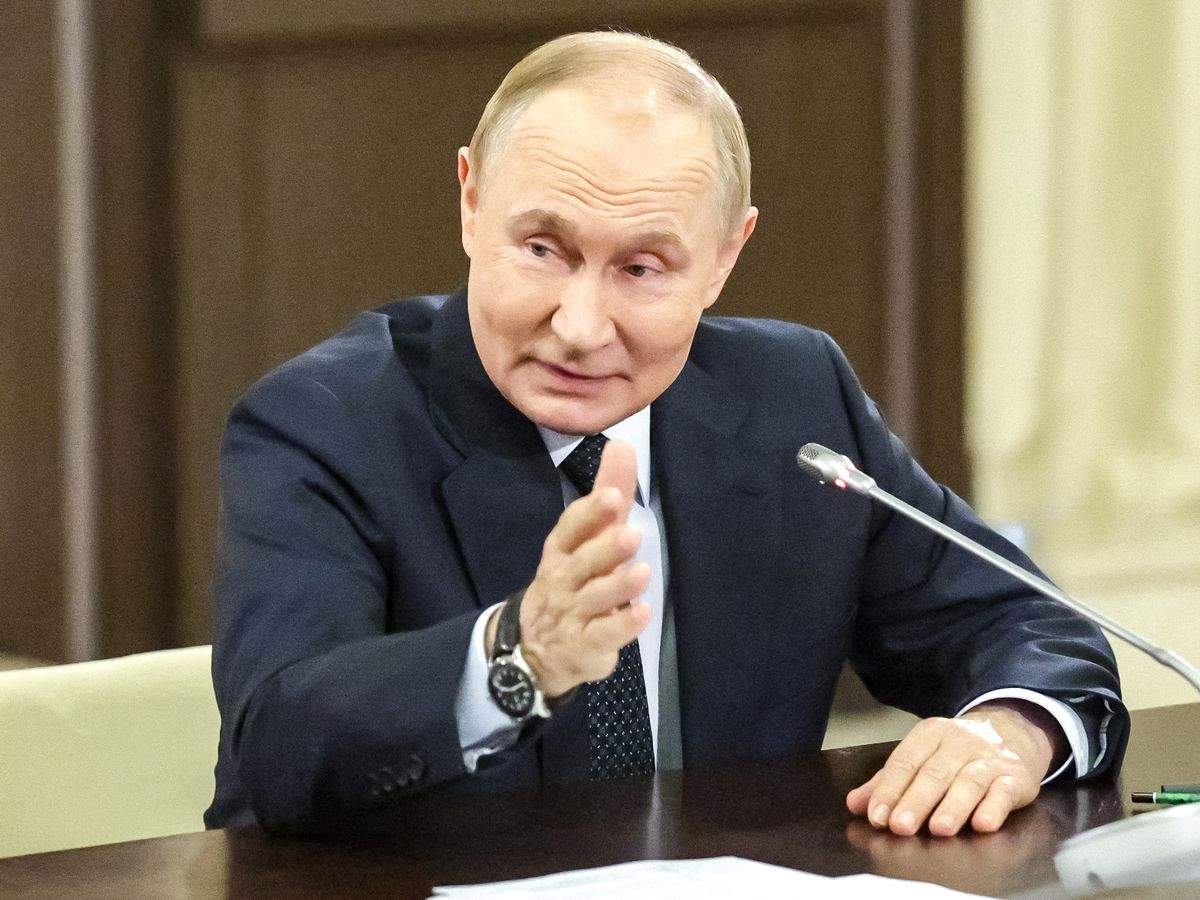By Benjamin Lynch
Copyright dailystar

The UK is extremely vulnerable to potential “catastrophic disruption” from damage to undersea cables caused by Vladimir Putin ’s Russia . MPs and peers said they are “not confident” the UK could protect its undersea cables from attacks by the nutty Kremlinite, leading to chaos in the financial and communications systems Britons rely on. There is evidence Moscow is preparing for sabotage, with the Russian spy vessel Yantar caught loitering over UK offshore cables in January, and the National Security Strategy Committee said offshore cables are “sufficiently vulnerable to make them a target” if Mad Vlad ramps up his tests of NATO’s resilience Concerns have been growing about the threat from foreign adversaries to subsea infrastructure critical to internet connectivity. The Government is “too timid” in defending its roughly 50 active undersea cables, on which the UK is almost entirely reliant for data transmission to the rest of the world, according to the committee, which criticised the “inadequacy” of security preparations. The parliamentarians stressed there is “no imminent threat” to the UK’s national connectivity and that processes to fix routine damage to these power lines – often caused by fishing vessels dragging anchors – are robust. But they said “focusing on fishing accidents and low-level sabotage is no longer good enough” amid rising geopolitical tensions. And they warned that in a conflict, co-ordinated attacks could cause internet blackouts, cripple payment systems and supply chains, and overstretch emergency services. Military communications and financial services could be hit, threatening billions of dollars worth of cross-border trading carried through subsea cables every day. The committee wrote in its report: “Given the deteriorating security environment and the UK’s growing military role in Europe, we can no longer rule out the possibility of UK infrastructure being targeted in a crisis. “We are also not confident that the UK could prevent such attacks or recover within an acceptable time period.” The MPs and peers called for “more muscular deterrence”, including major fines and criminal liability for malicious cable damage and increased “direct physical interdiction and prosecution” of suspicious vessels and crew. The Government should support the industry in rolling out new monitoring and alert systems to improve early warning and vessel interception, they added. They also recommended that ministers acquire a cable repair ship by 2030, as the UK currently has no vessel of its own and relies on international consortiums, where repairs can be slow and potentially unreliable in a crisis. Committee chairman Matt Western said: “Undersea cables are the invisible backbone of the internet. Everything from everyday WhatsApp messages to financial transactions worth billions of dollars are carried through this network. The scale of the UK’s strategic reliance needs to be taken more seriously. “The Government must raise its gaze. Focusing on fishing accidents and low-level incidents is no longer good enough. We need stronger physical protections, better options to impose genuine costs for malicious activity, and more comprehensive recovery plans.” In response, a Ministry of Defence (MoD) spokesperson told the Star that the Strategic Defence review issued earlier this yeae “aleady addresses many of the issues in this report by investing in new capabilities to help protect our offshore infrastructure, utilising the latest technology”. They added: “This includes through the UK-led reaction system Nordic Warden, to track potential threats to undersea infrastructure, the high-tech RFA Proteus and Atlantic Bastion – high tech sensors above and below the seas to track submarines. We are strengthening our Armed Forces and working with Allies to ensure the UK’s security and resilience 24/7.” In the event of an invasion of NATO, Russia is likely to engage in so-called ’hybrid warfare’ in the lead up to an attack. This could involve a stepping up of attacks on critical infrastructure, such as underwater sea cables. In June, Luke Pollard MP, the armed forces minister, said in evidence to the Joint Committee on National Security Strategy that the UK’s roughly 60 undersea cables are a “target”. Former Tory defence secretary Grant Shapps told Politico in May that undersea infrastructure, which includes cables but also gas pipelines, and power lines are the “soft belly of British security”. For the latest breaking news and stories from across the globe from the Daily Star, sign up for our newsletter by clicking here .



